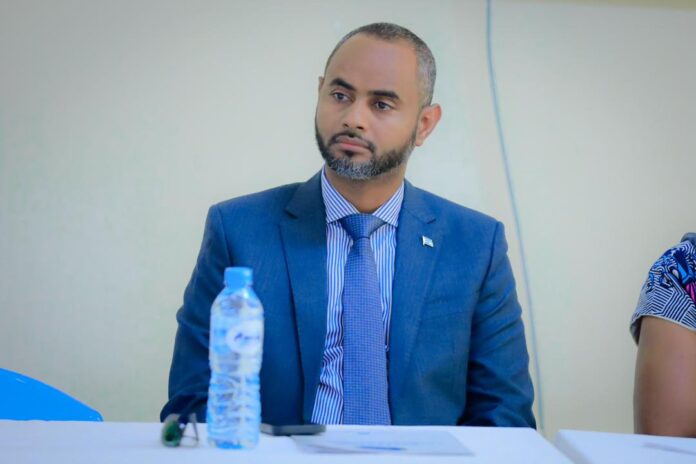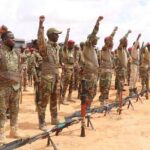MOGADISHU, Somalia — Somalia has made a resolute decision to bar Ethiopian troops from participating in the upcoming African Union peacekeeping mission, AUSSOM, set to commence in January 2025.
The move has heightened the already strained relations between the two neighboring countries, highlighting ongoing disputes over sovereignty and territorial integrity.
Since the inception of AU peacekeeping missions in Somalia in 2007, troops from various African nations have been instrumental in the fight against Al-Shabaab, an Al-Qaeda linked militant group. The current mission, known as ATMIS (African Union Transition Mission in Somalia), has seen significant contributions from Ethiopian forces, numbering around 3,000. ATMIS is slated to end its operations by December 2024, paving the way for AUSSOM to take over.
The exclusion of Ethiopia from AUSSOM was publicly announced by Somalia’s Defence Minister Abdulkadir Mohamed Nur during an exclusive interview on state-run Radio Mogadishu. He stated, “Ethiopia is the only government we know of so far that will not participate in the new mission because it has violated our sovereignty and unity.” This declaration not only signifies a major shift in regional security dynamics but also reflects deeper issues concerning national sovereignty and international relations in the Horn of Africa.
Ethiopia’s exclusion from AUSSOM comes at a time when both nations have been at loggerheads over several issues, including maritime access and regional influence. Somalia’s decision might also be perceived as a strategic move to assert control over its security operations, potentially reducing foreign military presence in its affairs.
The announcement has sparked a variety of reactions on social media platforms like X, where sentiments range from support for Somalia’s sovereignty to concerns about the impact on regional stability and the ongoing fight against terrorism. Posts on X indicate a mix of national pride among Somalis for standing up against perceived violations of sovereignty, and worries about the potential weakening of the anti-Shabaab efforts without Ethiopia’s involvement.
The exclusion of Ethiopia could have broader implications for the region’s security architecture. It remains to be seen how this decision will affect the operational capabilities of AUSSOM and whether it will lead to a reconfiguration of troop contributions from other African nations. Moreover, there is speculation about how this might influence Ethiopia’s foreign policy and its relations with other countries in the AU.
As the situation develops, the international community, particularly those invested in Somalia’s stability and the fight against extremism, will be watching closely to see how these diplomatic tensions play out and what adjustments might be made to ensure the continuity and effectiveness of peacekeeping efforts in Somalia.





